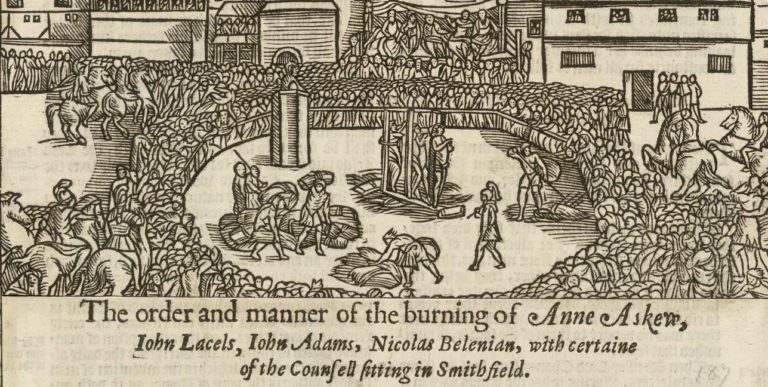On Monday 15th April, a teenager stabbed two Eastern Orthodox priests during a church service in western Sydney, in what seems to be a religiously-motivated attack. The chief target, Bishop Emmanuel, has become simultaneously popular and controversial by being outspokenly conservative in all manner of social issues, from sex to Islam to pandemic lockdowns.[1] This, and the angry response of the crowd that gathered after the attack, have made the NSW Police and Government understandably concerned about the possibilities of an escalating spiral of retaliatory violence.
In this environment, we have an opportunity to pray for and work towards communal, inter-religious peace. Not just for the common good—for love of neighbour, but because that kind of secular peace is good for gospel proclamation.
The Possibility of Peaceful Christian Living
In 1 Timothy 2:1–7 Paul calls on us to pray for our government:
I urge, then, first of all, that petitions, prayers, intercession and thanksgiving be made for all people—for kings and all those in authority, that we may live peaceful and quiet lives in all godliness and holiness.
Paul does not exhort us to pray for an explicitly Christian government or political structure; nor does it imply that the gospel can only advance under governmental favour. We do not need what Aaron Renn called the ‘positive world’, where public Christian or religious identification provides social benefits.[2] But neither does this passage suggest that Christians should expect to always be in what Renn calls the ‘negative world,’ being oppressed and persecuted by an anti-Christian theocracy or by militant secularism.[3] What this passage does assume, is that it is possible for Christians to live publicly, even in the pre-Christian Roman Empire, without having to fear official punishment.[4]
Prayer for All People
Paul urges as a matter of first importance that “prayers, intercession and thanksgiving be made for all people” without distinction (1 Tim 2:1). He wants us to pray for the world— for all people everywhere. That means our entire global community, wracked with all kinds of wars, conflicts, disasters and other miseries. It means Australia as a nation, and our states and local communities.
This mirrors the care of our creator God for the whole world and all its people, whether they believe in him or not, whether they are Christian or not. “He causes his sun to rise on the evil and the good, and sends rain on the righteous and the unrighteous” (Matt 5:45). In pagan Lystra, Paul interprets this divine provision as part of God’s testimony to himself: “he has shown kindness by giving you rain from heaven and crops in their seasons; he provides you with plenty of food and fills your hearts with joy” (Acts 14:17).
So, let’s pray for our world. Let’s pray in light of great commission (Matt 28:18–20): that all nations would be baptised into the name of the holy trinity and come to know and obey the apostolic gospel. But we don’t only have to pray that kind of uniquely Christian, evangelistic, missionary prayer. We can also pray that all people enjoy God’s protection and provision, and that they would thank him for it, instead of taking it for granted and grumbling that they don’t have it better.
The Government Can Hinder Christian Godly Living
In 1 Timothy 2:2, Paul wants us to pray first of all not for fellow Christians, nor even Christian leaders, but for “kings and all those in authority.” Consistent with Romans 13:1–7, Paul recognises that God entrusts every society’s government with the duty to shape that society. In 1 Timothy, Paul explicitly articulates that a government can either enable or hinder Christians from living “peaceful and quiet lives in all godliness and holiness.”[5]
Many social commentators have observed how here in the ‘Western world’, Christian identity and lifestyle is now viewed with suspicion. Christian godliness and holiness have become incompatible with a peaceful and quiet life. Aggressive secularists view Christian morality, especially sexual ethics, as antithetical to communal harmony.[6] From the Christian perspective, this means that we need to get used to being accused of troublemaking (Acts 17:6).[7] This is the kind of social situation envisaged in the book of Revelation. The only response in such circumstances is faithful endurance (Rev 13:10). This may be, or may soon become, the environment we face in the post-Christian, increasingly anti-Christian West.
The Government Can Enable (or at Least Allow) Godly Living
But if I’m understanding Paul aright, such decline into oppression is not inevitable. We should pray that local, state and federal governments in Australia will recognise the socially harmonious benefit of religion in general, and of Christian beliefs and behaviours in particular. Atheist historian Tom Holland has done so.[8] Richard Dawkins recently caused a stir by calling himself a cultural Christian.[9] Could Australia, and perhaps the West in general, draw back from a negative to a neutral world, where religion and Christianity are genuinely tolerated, if not favoured?
If that ever happens, we must not then treat such social tolerance as an entitlement, a reward for faithfulness, or even a luxury to be enjoyed while it lasts. Rather, as, Paul continues to write, we should use any such tolerance and freedom for a evangelistic purpose:
This is good, and pleases God our Saviour, who wants all people to be saved and to come to a knowledge of the truth. For there is one God and one mediator between God and mankind, the man Christ Jesus, who gave himself as a ransom for all people. This has now been witnessed to at the proper time. (1 Timothy 2:3–6a)
The ability of Christians to live in peaceful godliness and holiness please God not only because God desires peace for his people (although he does), but because this kind of public tolerance of godliness advances God’s desire “all people… be saved and… come to a knowledge of the truth.
This kind of effective proclamation does not require special protection or privilege. Tolerance is adequate.[10] All the government needs to recognise is that distinctively Christian godliness and holiness—including orthodox Christian sexual morality—is compatible with peace and quiet. We can then peacefully demonstration, both in public and private, how and why Christ gives us not just peace in this world but eternal peace with God.
Bishop Emmanuel and the other victim of last Monday’s knife attack, Father Kochou, are excellent examples of this kind of peace. They have publicly forgiven their attacker, gently chastised the rioters who attacked first responders, and called their supporters to similarly forgive.[11] Let us join them in peacefully proclaiming the peace which Christ uniquely brings, in this world and the next. And let us pray that all levels of Australian government continue to permit us adequate peace for peaceful proclamation.
[1] ‘Sydney church stabbing: how an alleged attack on a firebrand preacher reignited tensions’; ‘What we know about Bishop Mar Mari Emmanuel, who was stabbed in the Sydney church attack’; ‘Sydney church stabbing: Religious community tensions run high’.
[2] See also Aaron M. Renn, Life in the Negative World: Confronting Challenges in an Anti-Christian Culture (Grand Rapids: Zondervan, 2024).
[3] I call this a ‘seculocracy,’ because in its aggressive attempts to systematically remove religion from all areas of individual and communal life, it ironically mimics theocratic intolerance.
[4] In such a circumstances, they may of course still face deeply hurtful persecution of social mockery, rejection by family.
[5] Tertullian is famous for having said that the blood of the martyrs is the seed of the church. But Tertullian was not presenting persecution as some kind of perverse prescription for church growth. He was using the Christian resilience against persecution as an argument against such persecution (see Tertullian, Apology, chapter 50 section 13). Indeed, a 2014 study concluded that there is no statistically significant correlation between religious persecution.
[6] Contemporary ‘Western’ libertarianism assumes that society serves the individual through facilitating individual self-expression and self-fulfilment, especially in the realms of sex and gender. The removal of limitations upon individuals is therefore almost always interpreted to be socially beneficial, and the imposition of limits almost always detrimental. Any religious basis of such limitations reinforces the secularist prejudice that religion is socially detrimental.
[7] On which see Stephen MacAlpine’s award-winning book Being The Bad Guys (Epsom, UK: Good Book Company, 2021).
[8] Tom Holland, Dominion: How the Christian Revolution Remade the World (New York: Basic Books, 2019).
[9] Although he’s actually called himself that since at least 2007.
[10] Of course, effective proclamation does not entirely depend on this kind of tolerance. When Christianity is hindered by the government, “We must obey God rather than human beings” (Acts 5:29).
[11] ‘Sydney bishop forgives alleged attacker after church stabbing, calls for ‘Christlike’ response’; Sam Nichols, ‘Stabbed Sydney Bishop Mar Mari Emmanuel releases update, publicly forgives attacker and calls for calm’.















